Amendments and clarifications to FRS 102 have prompted changes to the reporting requirements of Registered Providers, with an updated SORP and Accounting Direction, as well as changes to SHPS accounting.
The Housing SORP 2018 Update
The National Housing Federation has updated the Housing SORP following recent amendments to accounting standard FRS 102 which resulted from its triennial review, as well as clarifying some other areas of the previous version of the SORP. It will be effective for periods beginning on or after 1st January 2019, but early adoption is also permitted.
The key changes introduced by the SORP update are:
- Clarification of what should be included in ‘Operating Surplus’. The SORP clarifies that profits/losses on the disposal of properties, restructuring costs, and depreciation and amortisation costs should all be included in the operating surplus result and that amounts should not be excluded simply because they are exceptional.
- The removal of the ‘undue cost and effort’ exemption in valuing investment properties. As a result, there is a requirement that all investment properties should be disclosed in the Financial Statements at valuation.
- Allowing an accounting policy choice to disclose properties rented to other group entities at either valuation or cost.
- The requirement to include a net debt reconciliation as part of the Cash Flow disclosures.
Accounting Direction Update (2019)
The Accounting Direction, which sets out additional disclosure requirements for the accounts of private registered providers, has been amended by the Regulator of Social Housing. It is applicable for accounting periods beginning on or after 1 January 2019, although early adoption is encouraged. The changes are fairly modest, and include:
- An update to the section on Value for Money disclosure to reflect the requirements of the legislative 2018 VfM standard. The new direction requires Registered Providers to publish information within the statutory accounts to enable stakeholders to understand performance against the Association’s own value for money targets and any metrics set out by the regulator, together with measurement against peers and measures to address underperformance. A handy guide to preparing the metrics for smaller providers of social housing can be found here
- Revised disclosure requirements for the Disposal Proceeds Fund which, subject to transitional arrangements, has been abolished by the 2016 Housing and Planning Act.
- Various minor changes to avoid unnecessary duplication of requirements already in the Housing SORP.
SHPS defined benefit pension scheme
Developments are emerging in respect of accounting for the Social Housing Pension Scheme (SHPS) defined benefit pension scheme. The refinement of data and systems over the past two years means that it will now be possible to account for the scheme fully on the Balance Sheet. In previous years, as a multi-employer scheme, there was insufficient information for Social Housing Providers to accurately determine their underlying share of the scheme’s assets and liabilities.
Instead, in accordance with FRS 102, Social Housing Providers have fully provided for the net present value of the contributions which they were contractually required to pay in respect of the scheme deficit. The Scheme’s actuaries have been able to refine their data and systems sufficiently to enable each Social Housing Provider’s share of the underlying assets and liabilities to be determined and, as a result, from 2018/19 onwards it is this net liability which will be brought into account. The implications are as follows:
- Since The Pensions Trust (TPT) can now determine each association’s share of the scheme, we will be able to reassess the liability, and hence treat it as a change in accounting estimate.
- Under the old basis, every 3 years the actuarial valuation would revise the deficit contributions which would result in a change in the required provision and significantly affect the reported results for the year. Under the new basis, there will be a valuation every year which should smooth out the changes.
- Under the old basis, the whole of the increase in the provision would be reported as part of the operating result for the year. Under the new basis, any changes in actuarial assumptions affecting the increase in the provision are reported separately as part of other comprehensive income, in accordance with FRS 102.
Indicative valuations have been produced as at September 2017 by the scheme Actuary, but final figures for the year end accounts are not expected to be produced until May 2019.
Get in touch or request a call back:
Call 0330 223 6400 or complete the form to make an enquiry or request a call back (* indicates a mandatory field).



